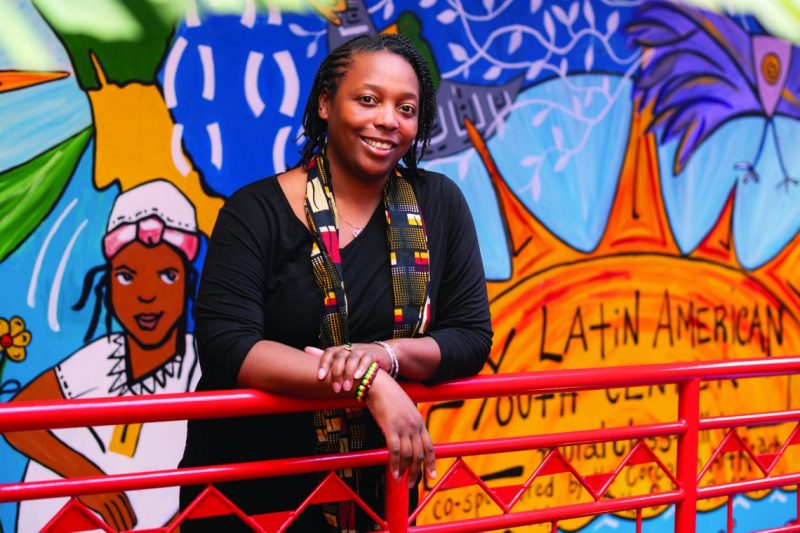Kid’s Place At the Latin American Youth Center, Kynai Johnson ’06 preps the way for a more equitable future for young people.
“I’m really interested in identity exploration and how people learn to recognize and deconstruct their lived experience as a way to understand a little bit more about how everybody’s lived experience is different.”
~ Kynai Johnson ’06
Kynai Johnson ‘06 has never had a routine day at the office. As the director of education and workforce for the Latin American Youth
Center (LAYC), Johnson might spend one morning polishing a grant for one of the agency’s after-school programs in Washington, D.C., and Maryland. The next day Johnson, a licensed independent clinical social worker, might brainstorm with coworkers about an upcoming training session. She provides clinical supervision to a social worker on staff who’s working toward her own licensure.
“Most days it really just depends what’s going on,” said Johnson, who majored in Spanish and communications at W&L. While the biggest chunk of Johnson’s work hours are dedicated to administrative tasks, she’s careful to carve out time for working directly with the youth and families who use LAYC’s services. She serves in “a principal role” for LAYC’s Digital Pathways Program, where students, typically between the ages of 16 and 24, can receive a variety of services, including GED preparation, IT certification and job-readiness training.
Johnson also teaches a class on identity exploration and the 21st century, “Which is something I really love,” she said. The time she spends with students isn’t strictly altruistic. Johnson believes she needs to hear from young people about their LAYC experience in order to steer the education and workforce department. “I recognize them as a really valuable resource,” she said.
An Evolving Mission
Founders built LAYC in 1968 as a community center providing educational and vocational programs to the area’s immigrant Latinx youth. Over the years, the needs of D.C.’s young people changed. “Housing affordability has caused people to move further and further out,” said Johnson, who grew up in southern Maryland. “Now it is more true than it ever was that people who come to this agency are traveling from other parts of the city and also from Maryland or sometimes Virginia.”
LAYC serves over 4,000 students annually. More than half were born in the U.S., although they may have parents or grandparents born in another country. “Our demographics are about split between what I would call the Latinx community and the black community,” Johnson explained.
LAYC never turns away young people who need services, but the agency does work at stretching pennies. “There’s always the desire to expand capacity and to have more resources,” she said.
Insatiable Curiosity
When Johnson applied to the doctoral program in social work at The Catholic University of America it wasn’t to further any career goal. “I have a genuine love for learning,” she said. “I really care about social work and felt there was just still a lot more for me to learn in the field.”
Johnson, who hopes to earn her Ph.D. in the spring of 2020, is hard at work on a dissertation exploring how conscious graduate-level social work students are of social inequalities. “I’m really interested in identity exploration,” she said, “and how people learn to recognize and deconstruct
their lived experience as a way to understand a little bit more about how everybody’s lived experience is different.”
More About Kynai
The Explorer
To date, Johnson has visited 40 countries. She made her first trip abroad to Ecuador the summer after her sophomore year at W&L.
Self-Care
Johnson recharges by spending time with family and friends. A handful of former W&L classmates who live in Washington, D.C., frequently show up on her social calendar.
Social Work Responsibility
“I really consider myself to be a macro social worker. For me what that means is that I spend a lot of time thinking about social justice.” Through her work, Johnson hopes to create systemic change that results in “more equitable practices within the community.”
 Kynai Johnson ’06
Kynai Johnson ’06
You must be logged in to post a comment.